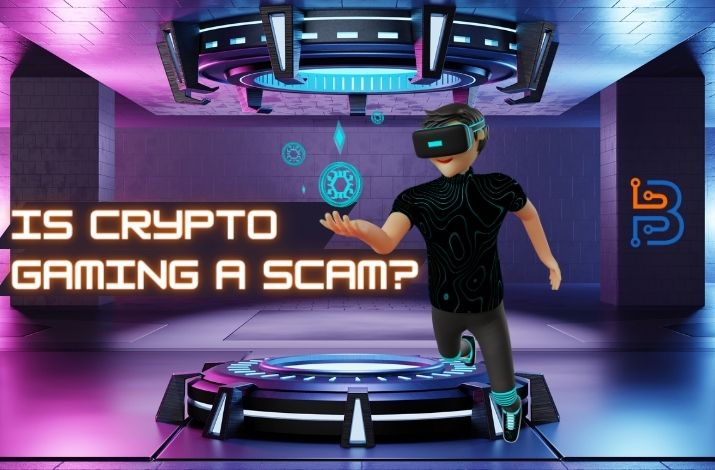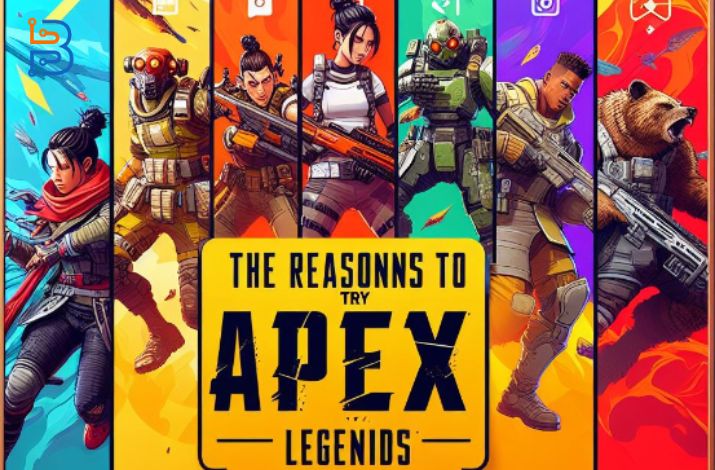Is Crypto Gaming a Scam?

Blockchain technology has taken the world by storm. When people think of cryptocurrency, most focus on purchasing Bitcoin or other crypto investments. However, cryptocurrency has been integrated into many other industries, including gaming.
Crypto gaming has become increasingly popular among many gamers. It is a merge between cryptocurrency and gaming, incorporating digital assets in the form of characters, skins, or virtual currency.
While crypto gaming is legitimate, there are some scams and it is important to know how to identify and protect yourself from these gaming scams.
How Does Crypto Gaming Work?
Virtual assets in gaming are not a new concept. Gamers have been buying digital assets or in-game items for a long time. However, crypto gaming takes it a notch higher.
Unlike traditional video games, any assets, obtained by players in crypto games, be they Non-fungible tokens or cryptocurrency fully belong to them. In other words, once a player acquires an asset within a game, they retain full ownership of it and possess the autonomy to buy, sell or exchange their assets as they see fit.
This leads to decentralized economies. In fact, this is one of the main blockchain gaming features. Games like Decentraland, a 3D user-owned game based on Ethereum, allow players to design their own virtual spaces, play the games, socialize with other players, gain collectibles, exchange them, and sell their digital real estate.
Another feature of crypto gaming is crypto gambling in games. In games such as the limbo crypto game crypto assets are used as the main currency mode of betting. Players can deposit and withdraw using cryptocurrencies.
Top Gaming Tokens
Blockchain-based gaming NFTs are typically crafted with a game’s context in mind and can occasionally find use within the game itself or a specific gaming ecosystem. Here are a few examples of prominent gaming tokens:
- ApeCoin (APE). ApeCoin is the native coin of the Bored Ape Yacht Club that has been incorporated by many game developers in their games. The Bored Ape Yacht Club is a collection of NFTs that have been built on the Ethereum (ETH) blockchain.
- Axie Infinity. Axie Infinity stands out as a premier gaming cryptocurrency, renowned for its generous play-to-earn incentives. Players have the opportunity to buy, nurture, and even breed virtual creatures known as Axies. Axies can also be traded amongst users or enlisted for engaging in battles against fellow players.
- Sandbox (SAND) is a metaverse operating on the Ethereum blockchain. Within this environment, its SAND tokens play a pivotal role, as it streamlines in-game transactions and procures digital parcels of land known as LAND.
- Decentraland (MANA). Decentraland (MANA) is the native token for Decentraland, the virtual world mentioned above. This platform has games, digital real estate users can buy and sell, as well as a social interaction hub.
How to Spot A Fake Crypto Game
There are several tale signs you can use to know if a crypto game is a scam.

It has Broken Links
A broken link, also known as a dead link is a hyperlink attached to an empty or non-existent external webpage. When the link is clicked, an error message is displayed. Fake crypto games usually have broken links in whitepapers or landing pages.
The Project’s Team
Most professional projects have developers or partners with a wealth of accumulated experience. You can also easily find their information online. Nevertheless, many investors in crypto gaming scams are usually beginners or expert scammers who have learned how to lure inexperienced crypto gamers using ads and beautiful websites.
While some GameFi projects have had anonymous teams, it is important to find out what you can about the game before playing and investing.
Too Many Typos
A lot of thought goes into defining a crypto project. If a crypto game has a landing page or white paper with too many typos, then the project is probably a fake one.
Smart Contract
Crypto games rely on smart contracts for facilitating transactions. Another means of verifying the authenticity of a game involves evaluating the integrity of its smart contracts. Thankfully, there exist various resources at one’s disposal, such as BscScan or Etherscan, which offer comprehensive insights into the project.
This information includes when the game was created, how many tokens have been issued, or even user statistics, enabling gamers to make informed judgments regarding the game’s legitimacy.
Projects on Social Networks
Most crypto projects gain traction through social media. A method to verify the authenticity of a game involves examining its social media presence. Take note of the level of engagement and participation within conversations on its social media pages. This can provide insights into the legitimacy of the game.
How to Protect Yourself From Scams
Though these methods are great, scammers have adapted and designed ways they can deceive gamers. These scams are usually premeditated and users should, therefore be vigilant in protecting themselves. There are different ways one can protect themselves online.
Check Reviews
One of the main ways one can protect yourself online is by reading reviews from professional platforms or experts. Do not rely on fun slogans or social media posts. Reading reviews will help you know what is legitimate and what is a scam.
Research the Game
Do your due diligence. The significance of this cannot be overstated: thoroughly research the game, its developer, and the reputation surrounding the game. White papers and landing pages can be faked. Do a comprehensive search to confirm the legitimacy of the game.
Have a Unique Wallet For Gaming
Do not connect the wallet you use for investments to a game. Your gaming wallet should be separate just in case someone gets access to your wallet.
Keep your Information Private
It is of utmost importance to safeguard all your personal information. Refrain from sharing your complete name, address, phone number, or any financial details with fellow gamers. This is because even legitimate play-to-earn games can be, and some have been vulnerable to hacker attacks.
Finally
If it is too good to be true then it is probably a scam. Fake crypto games use unreasonable promises of huge returns to attract vulnerable or new blockchain gamers.






